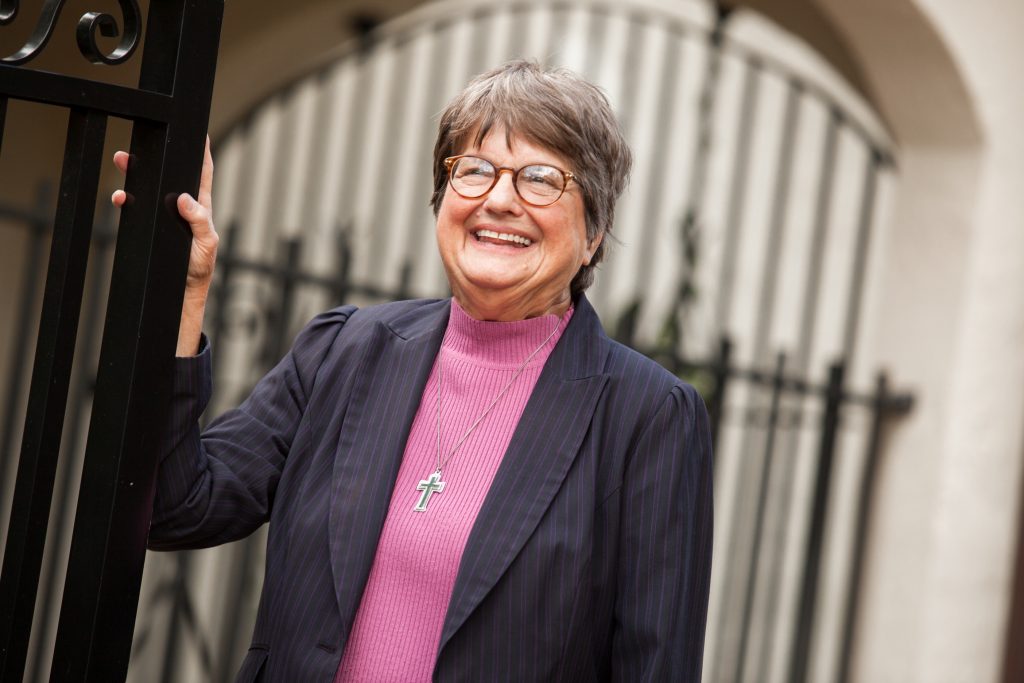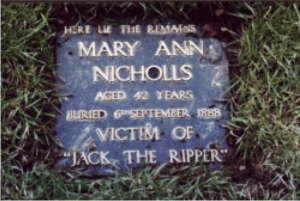Capital punishment has been used in the United States since its independence from the United Kingdom and is still applied in many of the 50 states today, with most executions in Texas, Virginia, Georgia, and Alabama. Over time, advocates have agreed that the death penalty is morally wrong and they argued that it should be considered unconstitutional, yet they have not achieved an end to capital punishment in either state legislatures or in the Supreme Court.1
During the 1700’s, advocates against the death penalty were able to restrict this punishment to those committed heinous crimes. In 1847, the anti-death penalty community helped capital punishment to be removed from Michigan. This was changed after World War I ended. In 1924, the state of Nevada decided to use lethal gas as an execution process. Then came the execution of Gee Jon for murder, which brought back death as the punishment for inflicting death or murder. 2 Anti-death penalty movements did not regain strength until Sister Helen Prejean helped to cast the debate in different terms.

Since 1981, Sister Helen Prejean has been a strong voice, and a most prominent one in the anti-death penalty community. Most humans and governments will not heed God’s commandment Thou Shall not Kill, but Sister Prejean became a strong advocate for that commandment. Beyond the religious imperative, Prejean explains how capital punishment is not useful in any way and is very dysfunctional. She has dedicated her life to God in the prison ministry in New Orleans. While Sister Prejean was living in the St. Thomas housing project, she began to write to a man who was convicted of killing two teenagers, Patrick Sonnier. Sonnier was to be executed by the electric chair in the State Prison of Louisiana.3
While Sister Prejean continuously visited Sonnier, she realized that executions were a huge issue, not only in Louisiana, but around the world. Sister Prejean wrote about her experiences in the book she wrote Dead Man Walking: An Eyewitness Account of the Death Penalty.4 She writes and explains how Louisiana’s prison system corrupts those who are involved with carrying out the execution. Especially security guards or “prison wardens” are not alert when working, along with working in that environment, is the feeling of being stressed. The stress can cause them to react in a certain ways toward prisoners and even accept the death penalty against them.5 Prejean mentions how many politicians support the death penalty mainly because they do not want to be mocked for being weak on crime by having an anti-death penalty stance.6
Helen Prejean during these times took the initiative to spend time with the victims’ families and understand why the death penalty is a win for them. The reason the victims’ families believe this is a pro for them is because it is “healing” and they receive “faux closure”. During those fifteen years, she continued to witness five other executions in Louisiana and to this day gives the younger generation information on the death penalty by writing and giving lectures.7
Prejean always took the anti-death penalty to the political system and even caused a few battles with some victories that were not big, but in that time it was still something to her. She did everything she could to gain justice, but the movement ultimately could not completely end capital punishment in the US.8

Prejean did her best to abolish the death penalty and she always gave many reasons for it, but with the issues coming against the fear of criminals and the devaluation of human lives, it is still unlikely to see its eradication in the US. Today, Prejean as the founder of “Survive” runs this victim’s advocacy group in New Orleans. In addition to that, she counsels inmates who are on death row and she provides support to the families of victims who were murdered.
Barry Scheck’s Innocence Project helps those who are innocent to increase awareness and prevent execution. Prejean has received an award from the Innocence Project of Florida for her outstanding work in advocating against the death penalty. “Sister Helen asked…”, during her speech, “…but what about the people advocating and fighting for them and the people working at innocence projects?”.9
No matter the outcome, fighting for what is morally right continues to drive advocates who stand against the death penalty. Prejean will continue to investigate flaws in the death penalty system which has led to many innocents being wrongly executed. Sister Prejean questions the justice system because of the discriminatory way that capital punishment is disproportionately applied to minorities. As she continues, there is still hope in Washington for the Death Penalty to be removed. Senator Miloscia warns against the killing of innocent people, he calls these “improper death penalty executions.”10 Although many still support the death penalty, change occurs when new elected officials like Governor Inslee pronounce themselves against capital punishment. As we learned from Sister Prejean, fighting for justice is a moral commandment.
- George Brauchler and Rich Orman, “Lies, Damn Lies, and Anti-Death Penalty Research,” 93, no. 3 (2005): 635-714. ↵
- McLaughlin, Jolie. “The Price of Justice: Interest-Convergence, Cost, and The Anti-Death Penalty Movement,” Northwestern University Law Review,108, no. 2 (2014): 675-710. Academic Search Complete, EBSCOhost. ↵
- “Biography” Sister Helen Prejean. https://www.sisterhelen.org/biography/.(2018). ↵
- Helen Prejean, Dead man walking: an eyewitness account of the death penalty in the United States, (New York: Vintage Books, (1994). ↵
- Lewis, Dorothy Otnow, Catherine A. Yeager, Pamela Blake, Barbara Bard, and Maren Strenziok. “Ethics Questions Raised by the Neuropsychiatric, Neuropsychological, Educational, Developmental, and Family Characteristics of 18 Juveniles Awaiting Execution in Texas.” Journal Of The American Academy Of Psychiatry And The Law, 32. No.4 (2004): 408-429 PsycINFO, EBSCOhost. ↵
- Daniels, Kristen Whitney. “Helen Prejean sways hearts with stories.” National Catholic Reporter 53(24), (2017): 1a-2a. ↵
- Press Release. “Innocence: Another Exoneration from Death Row—Reginald Griffin of Missouri,.” Death Penalty Information Center. (2015). ↵
- Mallory, Conally. “Abolitionists at home and abroad: a right to consular assistance and the death penatly.” Melbourne Journal Of International Law no. 1 (2016). ↵
- De La Fuenta, Alejandra. “My Experience at Innocence Project of Florida’s 2016 Steppin’Out Spring Gala.” Plain Error: The Official Blog of The Innocence Project of Florida. (2016) ↵
- Lauren Gill, “End of the Death Penalty? Washington Could Become the Next State to Abolish Capital Punishment” Newsweek, (2018). ↵



121 comments
Luisa Ortiz
When reading this article i couldn’t stop thinking in Blessed Mother Theresa of Calcutta, maybe because both advocated for the dignity of human life. It’s a very controversial topic but i enjoy reading that sister Prejean not only works with the imprisoned and their families as well as with family’s victims too. I never thought there was such thing as “faux closure ” , so i start wondering how is that “killing the killer” brings out justice for the family’s victims ?
Christopher Sanchez
This is a very a controversial topic on whether to end a life or save it. Their are people in this world that have done horrible things and the best way in some states especially Texas is to put the murderer on the death penalty. As a catholic I always taught to forgive others no matter what they do but I always here what if they kill your parents or siblings. That thought had stayed in my mind and left me in a constant circle of what is the right thing to do. This was a good article and provided good background information on Sister Helen.
Timothy ODekirk
Sister Helen is a great example of someone who stands up against the death penalty. I knew about Sister Hellen for quite sometime since I saw the movie, “Dead Man Walking” last year in my senior year religion class in high school. This was an inspirational story of a woman who puts aside what a person has done to other people or to the families of the one’s that they had murdered, and says that the death penalty is still wrong, no mater the offense. After reading this article about Sister Helen and about the death penalty in particular, I realized the history behind the death penatly and how immoral it is, making this be a perfect topic for an acamdemic explaatory article. What a great article and what a great inspiration for me with my writing.
Carlos Vazquez
The debate over capital punishment in the united states, has been a topic of controversy since the Independence from the United Kingdom. This article is so interesting to read because it shows how strong some people like sister Prejean feel about the executions in this country. This article was very well written and informative, although I had never heard of sister Prejean, I really enjoyed reading about her.
Destiny Renteria
Thank you !
Christopher Martinez
This article was great, The death penalty is a very controversial topic. I remember having the conversation plenty of times in my high school American history class. This article did a great job explaining the side of not killing bringing up major aspects of the ideology of the death penalty being inhumane. Seemingly the death penalty is the harshest penalty that can be given. As many others i also don’t know how I stand due to me being able to understand both side to the story, but through years of protest it seems just as hard to change just like some of the gun laws we currently have incorporated in our society as well.
Destiny Renteria
Thank you for your comment!
Cheyanne Redman
The title really caught my attention, it drew me in instantly. The topic of the death penalty is on that has gained much controversy, but its not something that is widely talked about today. Even though I have my own opinions regarding the death penalty, I feel like what Sister Prejean is doing is a wonderful thing. It is very empowering that she is fighting so hard for what she believes in.
Destiny Renteria
I agree! Thank you!
Caroline Bush
Interesting article! This article covered a very controversial topic but its one that needs to be discussed. While I do think that it is admirable how Sister Prejean stood up for what she believed and actively fought for her belief’s. I still believe that the death penalty can be used as a form of justice for those who have committed the most heinous crimes. I do however agree that sometimes the justice system gets there rulings wrong and often those who have been wrongfully convicted get this penalty. I think that we need to be sure that someone is guilty before we pass this sentence down. Overall this article was very interesting and included plenty of details.
Destiny Renteria
Thank you Caroline!
Tyler Sleeter
Really great article with lots of information. I have heard of the Innocence Project but have heard of Sister Prejean. It seems to me that for a country based on Christian values should not allow a death penalty. However, since we live in Texas, the death penalty is something we are forced to deal with as an acceptable punishment. I appreciate that there are people out there working diligently to ensure that innocent people are not accidently put to death, but it seems to be such an uphill battle. Given the current political climate, I do not see the death penalty going away anytime soon.
Destiny Renteria
It may take a while to put away this decision, but with work I am sure we will have justice. Thank you!
Alexandra Cantu
This article instantly captivated my attention. I was intrigued with the title but the image made me double take. This is such a controversial topic many would say. Your argument against the death penalty. Sister Prejean is advocating for what she strongly believes in. You provided a great subject. This was such a tough subject to talk about and you were able to do it effortlessly.
Destiny Renteria
I appreciate it! thank you!
Peter Coons
With the polarization of “being tough on crime” and the death penalty going hand in hand, I doubt that the death penalty will ever be abolished in the U.S.. Sister Prejean, I think, knows this to some degree, and is why she incorporates the bible into her argument. What better way to sway the religiously conscience voter than to use biblical text as your argument against the death penalty? I think her work is something that needs more traction in the future. The amount of money spent by the tax payer just to kill a man for killing another man is both insane and ludicrous, and I wish Prejean the best of luck in her endevour. Great article!
Destiny Renteria
I agree with you! Thank you!